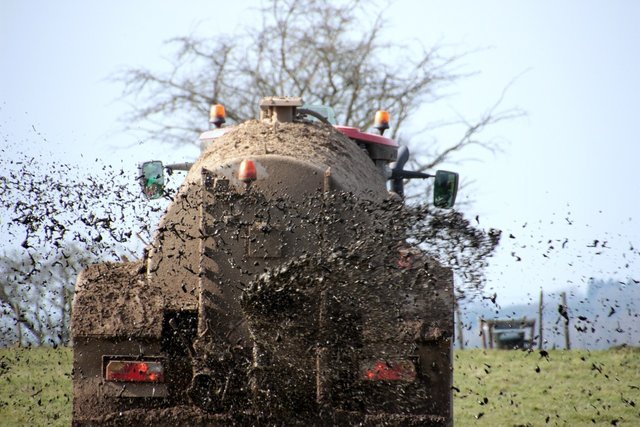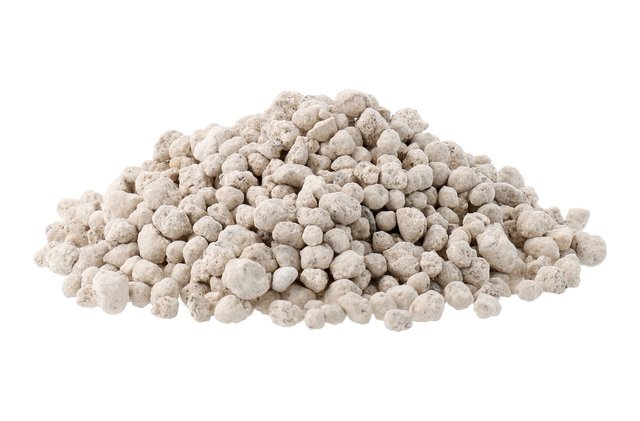Organic or Synthetic Fertilizers?

Organic Fertilizers
Are made from dead from plants and animals. Examples of organic fertilizers are: Bone Meal, Vermicompost, Manure, Kelp, Compost, and Fish Hydrolysate.
Synthetic Fertilizers
are inorganic, they're usually manufactured in large factories using otherwise waste materials from petroleum products. Examples are Ammonium Nitrate, Ammonium Phosphate, and Potassium Sulfate, and Urea.
Rock powders
are also inorganic but are generally permissible in organic food production. Examples are Greensand, Rock Phosphate, Basalt Dust, Azomiite and Zeolite.
Rock dusts can be used to provide trace minerals
Plants require 13 nutrients. Three well known macronutrients; nitrogen (N), phosphorus (P), and potassium (K). These three nutrients are used in the largest quantities by growing plants, and must be replaced in our soil to maximize productivity and crop yields.
The secondary nutrients are; calcium (Ca), magnesium (Mg), and sulfur (S). In most soils contain enough of these nutrients , so adding more is not always needed (though calcium is often used to control soil Ph).
The micronutrients required in smaller quantities are; boron (B), copper (Cu), iron (Fe), chlorine (Cl), manganese (Mn), molybdenum (Mo) and zinc (Zn).Plants cannot distinguish between an organic or synthetic fertilizer and in fact organic fertilizers must be broken down by microbes in soil to inorganic compounds to be absorbed by plant roots. This doesn't mean though that there's no difference to the health of your plants.
Chemical fertilizers often add only quick release nutrients to the soil, they don’t add slow release, long term plant nutrition and seldom add the secondary and micronutrients.
Using synthetic fertilizer would be like eating only this for the rest of your life
Plants also need organic matter and microorganisms. Synthetic fertilizers do not support microbiology in the soil. Synthetic fertilizer actually kills a significant percentage of beneficial microbes because they are salts and remove water from multicellular and single cell organisms by osmosis.
Microscopic creatures break down organic matter into a more slow release meal for plants than a chemical fertilizer. Organic material is like a healthy meal in our bodies and synthetic fertilizers can be compared to living on desserts.Microbes are crucial for improving soil fertility in the long term. Much like our own bodies would become unhealthy surviving on cake, soil, plants and biology become less healthy on a chemical diet.
Some microbes convert nitrogen from the air into plant useable forms, others "mine" for nutrients from surrounding rock and others break down large, insoluble organic molecules into smaller, inorganic compounds that can be taken up by plant roots when dissolved in water.
Fungi decompose "dead stuff" and nine for minerals for plant to use
Composted organic matter should increase the diversity of beneficial microorganisms in our soil. Nitrifying bacteria found in soil and compost convert organic nitrogen (often in the form of proteins from dead microbes or ammonia produced by decomposition) into inorganic nitrogen (nitrites and nitrates), in a process called nitrification. Plants may then take up the nitrogen released by these bacteria. Compost contains a surprising variety of microbes, many of which may be beneficial in controlling plant and human pathogens
• Organic matter improves soil structure, microbes produce sticky "glues"that hold organic materials into particles resulting in "crumbs" called aggregates. Aggregates allow water and air to enter the soil, roots to penetrate more deeply, and biology to grow. Diverse and active biological communities help soil resist compaction and to cycle nutrients at a rate that meets plants needs. Soil health and soil quality are terms used to describe soils that are fertile and also have physical and biological properties that sustain long term crop yields, and promote plant and animal health"• Organic matter holds water like a sponge and enhances the fertility of soil.• Diverse and healthy microbe populations can break down contaminants in soil and water to compounds that pose less of an environmental or health hazard (bioremediation)
There are some minor downsides to using organic fertilizers, but the benefits outweigh the pitfalls. Cons of organic amendments:
• Organic fertilizers may have large variables in nutrient content between batches.
• Organic materials are less dense in macronutrients compared to inorganic fertilizers. And rely on soil biology to work.
• Organic fertilizers may be expensive to use on large scale crop production.
• Organic fertilizers often lack consistent shape and size, and can be more difficult to apply as existing spreaders and equipment are designed for the uniform structure of synthetic fertilizers.
• The release of nutrients relies on microbiological activity, which generally rises and falls with soil temperature and moisture content; making nutrient availability variable.
Organic fertilizers can be messy and potentially cost prohibitive
Limitations of chemical fertilizers:
• Synthetic fertilizers usually do not provide micronutrients.
• Synthetic fertilizers do not support microbiology in the soil and actually tend to lower the diversity and overall biomass.
• Chemicals fertilizers do not add organic matter to the soil. This prevents the production of aggregates and crumb which leaves the soil vulnerable to compaction. Compaction prevents roots from penetrating deeply and increases irrigation costs.• Synthetic chemicals can be applied excessively, and can damage roots, or create a concentration of salts that draws water from plants backwards into soil through osmosis.
• Chemical fertilizers release nutrients quickly, creating a great deal of above ground growth above shallow roots. This type of growth leads to weaker, disease prone plants, with lower crop yields.
• Synthetic fertilizers, because they dissolve easily, and release nutrients faster than plants use them often leach into groundwater or wetlands. This causes algae blooms and environmental issues due to the competition for oxygen in aquatic ecosystems.
Synthetics are more uniform in shape and are easier to spread and apply
Healthy plants produce healthy food for healthy people. Organic principles produce healthy soil to grow healthy plants. How we treat our soil suddenly becomes as important as personal hygiene in maintaining our health and living longer lives.
Posted from my blog with SteemPress : https://thebluewormbin.com/organic-or-synthetic-fertilizers/





Congratulations @thebluewormbim! You have completed the following achievement on Steemit and have been rewarded with new badge(s) :
Click on the badge to view your Board of Honor.
If you no longer want to receive notifications, reply to this comment with the word
STOPDo not miss the last post from @steemitboard:
SteemitBoard World Cup Contest - The results, the winners and the prizes